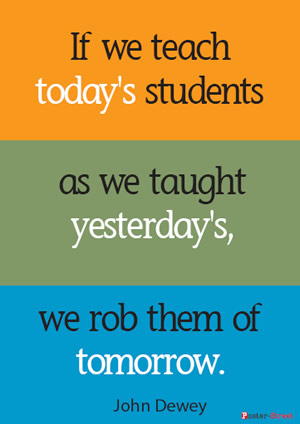Hands on minds on crucial part of curriculum planning
Reciprocal Questioning: students work together to ask and answer questions
Jigsaw Classroom: students become "experts" on one part of a group project and teach it to the others in their group
Structured Controversies: Students work together to research a particular controversy
Learning need to be an active, social process
Scientific method
Collaboration among learners
Knowledge should be discovered as an integrated whole
Engaging and challenging the learner
**Provide learners with an opportunity to discover and collaboratively construct meaning as the intervention unfolds. Learners are respected as unique individuals, and instructors act as facilitators rather than as teachers.
I would be interested in the certifications offered by the National Board for Professional Teaching Standards because their site sums it up wonderfully:
- Teachers are committed to students and their learning.
- Teachers know the subjects they teach and how to teach those subjects to students.
- Teachers are responsible for managing and monitoring student learning.
- Teachers think systematically about their practice and learn from experience.
- Teachers are members of learning communities
“We teach who we are”
Students know the teachers feelings and level of compassion one holds about the content being taught. It it up to the teachers to really gain an understanding and passion for everything they teach, because the more engaged they are about something, the more engaged their students will be. Students pick up on EVERYTHING
Reflection is crucial to being a great teacher and student. Teachers never stop learning therefore we should never stop reflecting. Reflecting is a way to think about what was done, what was successful and what wasn't. What should be done differently. How can something improve, how can one expand on this, etc. Reflections are some of the starting points for your next step in your curriculum planning.

No comments:
Post a Comment